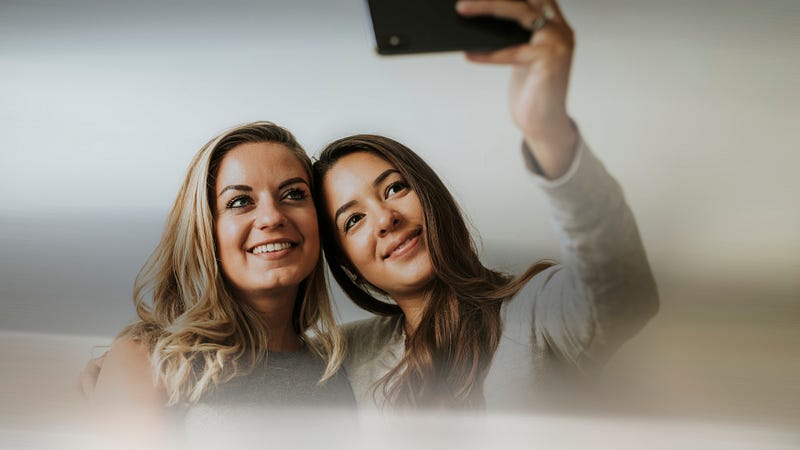The Camera Never Tells the Truth: How Selfies Alter Self-Image
Written on
Chapter 1: The Selfie Phenomenon
Are we experiencing a shift in how we perceive ourselves due to selfies?

Recently, I went out with a friend and captured a quick photo at the end of our evening together. The next day, I sent her the image. She responded, "Thanks, I’ll FaceTune it." Initially, I thought it was a cute gesture—she was going to add a soundtrack to our memorable moment. However, an hour later, she returned the photo, and my expectations quickly turned to shock.
The edited version of us appeared almost robotic. My cheekbones were accentuated unnaturally, my skin was smoothed to an unrealistic level, and my eyes looked hollow, while my lips appeared overly inflated. “Oh wow, did we drink formaldehyde in those Cosmopolitans?” I remarked, trying to mask my discomfort with humor. But the reality was unsettling. Was this the image I was supposed to embody?
Research indicates that many individuals perceive themselves as more attractive than they actually are. A study conducted in 2008 showed that participants, when presented with a blend of their own faces and more conventionally attractive ones through facial morphing, identified the enhanced version of themselves faster than their true likeness. Unbeknownst to them, their images had been altered.
This leads to a significant insight: we are often overly optimistic about our self-image. Nowadays, applying filters to enhance our appearances has become a simple task. The implications of this distorted self-view on our self-esteem are profound.
In a set of recent studies, participants were asked to complete self-esteem assessments and then evaluate their appearance in two contexts: their unaltered selves and through an augmented reality makeup application. The results were mixed. Those with healthy self-esteem found themselves most negatively affected by the filters, while those with lower self-esteem experienced a boost in confidence from their enhanced images.
Researchers proposed that beauty filters instilled hope in individuals with low self-esteem, suggesting that they could someday achieve these idealized standards of beauty. Conversely, those with higher self-esteem faced challenges as their augmented versions made them question their self-perception.
This trend has led to a concerning rise in requests for cosmetic surgery, with patients desiring to modify their appearances to match their filtered selfies. This is alarming because selfies, whether altered or not, do not accurately reflect how others perceive us.
Remember, there are two versions of your face: the mirrored reflection you see, which is reversed, and the true image that others observe. When we look in the mirror, we see a flipped version that we become accustomed to, leading us to prefer selfies over candid photographs taken by others. This phenomenon is known as the mere-exposure hypothesis.
Additionally, the camera distorts reality. Unlike real life, a camera translates three-dimensional images into two-dimensional forms, often resulting in distortions. For instance, if someone has a long nose, the camera's focus can exaggerate its appearance due to depth perception issues. Furthermore, selfies often use wide-angle lenses, which can distort facial features, making noses appear larger and cheekbones less defined.
Moreover, cameras can impact our memories. We often take photos to preserve memories, but studies suggest that this practice might hinder our ability to recall events. In one study, participants who were instructed to photograph objects during a museum tour remembered fewer details than those who simply observed. This occurs because taking photos allows the brain to relax its memory function, leading to less retention of the moment.
So, the next time you feel compelled to capture a selfie of a special occasion, consider putting the camera down and immersing yourself in the experience. Your memory—and perhaps your self-esteem—will benefit.
In my case, I decided to delete my friend’s altered photo. I prefer to cherish the memories of our real selves in life.
Chapter 2: The Impact of Filters on Self-Perception
This video explains why individuals often look better in real life compared to how they appear in photos. It dives into the psychological effects of self-image and perception.
This video discusses the reasons behind the discrepancies between our self-image and our appearance in photographs, along with methods to address these issues.